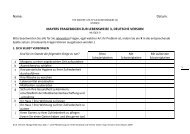Abstracts - York St John University
Abstracts - York St John University
Abstracts - York St John University
Create successful ePaper yourself
Turn your PDF publications into a flip-book with our unique Google optimized e-Paper software.
Annalisa Piccirillo holds a Ph.D in “Cultural and Postcolonial <strong>St</strong>udies of the Anglophone<br />
World” from the Università degli <strong>St</strong>udi di Napoli “L’Orientale”, Italy. She is a research fellow<br />
at the Department of Human and Social Science and is currently working on a project<br />
untitled “New Practices of Memory: Mediterranean ‘Matri-‐archives’”. Main areas of<br />
research: contemporary theatre/video-‐dance, performance art, theory of choreography,<br />
gender studies, postcolonial studies, disability studies, deconstruction.<br />
Improvisational relations: Interactive screen practices, refiguring subjectivities<br />
Vida L Midgelow (<strong>University</strong> of Middlesex)<br />
This presentation will share some early explorations of a new work in progress by dance<br />
researcher Vida L Midgelow (http://www.choreographiclab.org/ &<br />
http://danceimprovisationpractice.blogspot.co.uk/) and digital installation artist Nic<br />
Sandiland (http://www.nicsandiland.com). Their new collaborative work, generated<br />
within the framework of improvised practices, seeks to find modes of interaction and<br />
screen image that evoke nomadic subjectivities in the audience/participant. This new<br />
interactive screen work is founded in Midgelow’s thinking around improvisation as a<br />
nomadic practice. Like nomads, Midgelow has argued, improvisers are comfortable with<br />
transitions and change, they do not cling to illusions of permanence and stability in their<br />
dance. Improvisation enables subjectivity to be unfixed and deterritorialized, whilst being<br />
grounded and located in the materiality of the body and the places in which we dance. This<br />
presentation explores the ways it may be possible to extend these ideas, and the ethical<br />
relations between dancers evident within improvisation practices, through screen to/with<br />
audience.<br />
Vida L Midgelow is Professor in Dance and Choreographic Practices at Middlesex<br />
<strong>University</strong> and lives in Derbyshire. She has over 20 years experience facilitating and<br />
lecturing in performance. She is Co-‐Director of the movement research organisation<br />
'Choreographic Lab' and Co-‐editor of 'Choreographic Practices' (an internationally peer<br />
reviewed Journal). Her movement and video work has been shown internationally and she<br />
publishes her research in professional, online and academic journals. including recent<br />
essays in;<br />
‘Being’ and experiencing in between the ‘here’ and ‘there’ of digital dancing<br />
Kerry Francksen-‐Kelly (De Montfort <strong>University</strong>)<br />
Addressing notions of embodied practice and the ‘unpredictable territory of corporeal<br />
perceptual processes’ or ‘perceptual performativity’ (Vaas-‐Rhee 2010), this scholarly paper<br />
builds on Erin Manning’s notion of ‘sensing bodies in motion’ (2007) in order to discuss the<br />
possibilities for creating intimate exchanges between live and mediated dancing bodies.<br />
Drawing on an understanding of the body as a sensory, intelligible, and emotional entity<br />
this paper will explore how a conception of a live-‐digital body as an ‘expression (that)<br />
happens in the in-‐between of bodies’ (Manning 2007) can offer choreographers and<br />
dancers, who are increasingly faced with having to negotiate both live and digital domains,<br />
a perceptual framework for understanding how best to develop their sensibilities as both a<br />
live and digital body. This paper will, therefore, foreground the dancer’s experience of<br />
moving in such environments in order to engage more critically with those ‘perceptual<br />
processes’ in order to consider what it means to ‘dance’ in mediated environments.<br />
Through an analysis of the author’s own embodied experiences the thrust of the discussion<br />
12



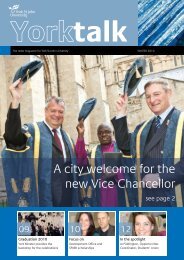
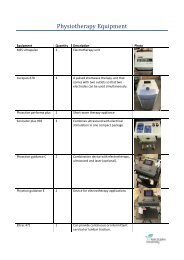
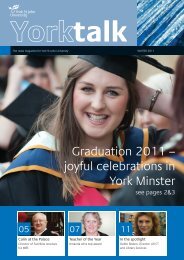

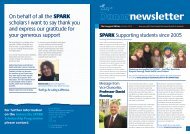
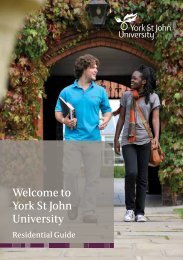
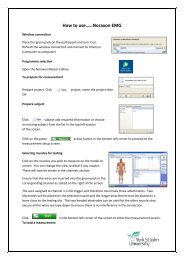
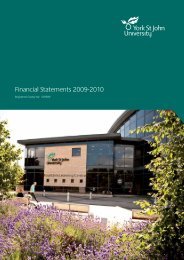

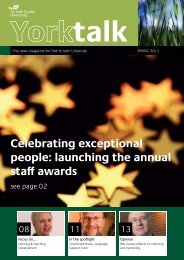

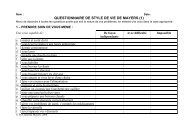
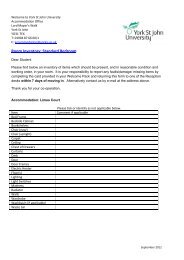
![â'Those [women] who feel strong and hope to find employment, a ...](https://img.yumpu.com/53506972/1/184x260/athose-women-who-feel-strong-and-hope-to-find-employment-a-.jpg?quality=85)
